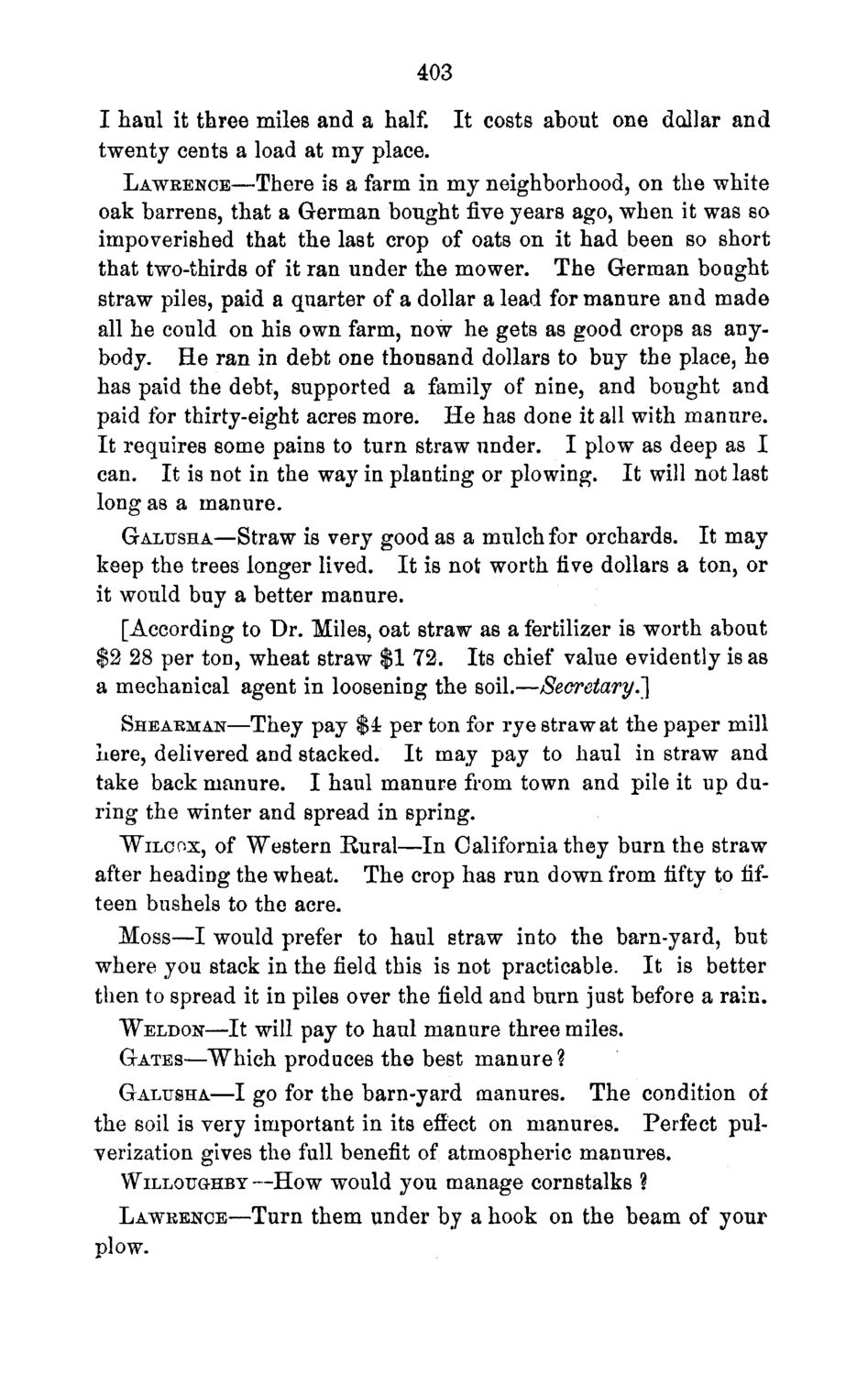| |
| |
Caption: Board of Trustees Minutes - 1870
This is a reduced-resolution page image for fast online browsing.

EXTRACTED TEXT FROM PAGE:
403 I haul it three miles and a half. It costs about one dollar and twenty cents a load at my place. LAWRENCE—There is a farm in my neighborhood, on the white oak barrens, that a German bought five years ago, when it was so impoverished that the last crop of oats on it had been so short that two-thirds of it ran under the mower. The German bought straw piles, paid a quarter of a dollar a lead for manure and made all he could on his own farm, now he gets as good crops as anybody. He ran in debt one thousand dollars to buy the place, he has paid the debt, supported a family of nine, and bought and paid for thirty-eight acres more. He has done it all with manure. It requires some pains to turn straw under. I plow as deep as I can. It is not in the way in planting or plowing. It will not last long as a manure. GALTJSHA—Straw is very good as a mulch for orchards. It may keep the trees longer lived. It is not worth five dollars a ton, or it would buy a better manure. [According to Dr. Miles, oat straw as a fertilizer is worth about $2 28 per ton, wheat straw $1 72. Its chief value evidently is as a mechanical agent in loosening the soil.—Secretary.'] SHEARMAN—They pay $4: per ton for rye straw at the paper mill here, delivered and stacked. It may pay to haul in straw and take back manure. I haul manure from town and pile it up during the winter and spread in spring. WILCOX, of Western Rural—In California they burn the straw after heading the wheat. The crop has run down from fifty to fifteen bushels to the acre. Moss—I would prefer to haul straw into the barn-yard, but where you stack in the field this is not practicable. It is better then to spread it in piles over the field and burn just before a rain. WELDON—It will pay to haul manure three miles. GATES—Which produces the best manure ? GALTJSHA—I go for the barn-yard manures. The condition of the soil is very important in its effect on manures. Perfect pulverization gives the full benefit of atmospheric manures. WILLOUGHBY—How would you manage cornstalks ? LAWRENCE—Turn them under by a hook on the beam of your plow.
| |